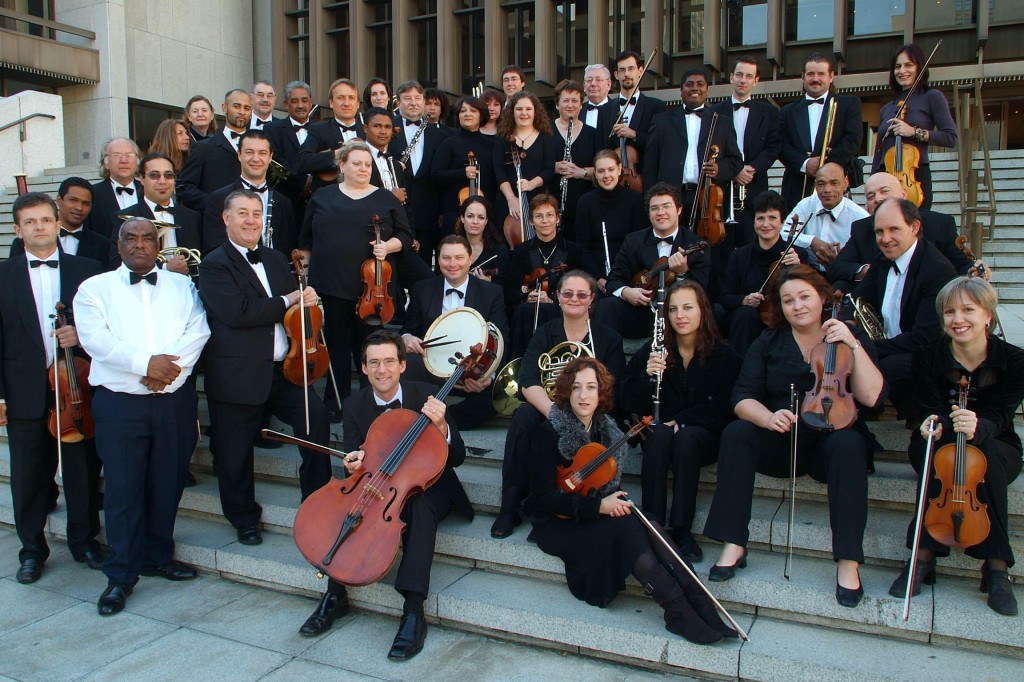Cape Town orchestra tour is a first for America and Africa

Maybe it’s a sign of how South Africans live today that Brandon Phillips of Cape Town hardly talks about his ethnicity. What seems to stand out in Phillips’ memory, as much as having grown up dark-skinned in a white-ruled country, is the encouragement he got for his childhood love of music.
“I was always dreaming to be in the orchestra one day,” says Phillips, 30, principal bassoonist with the Cape Town Philharmonic Orchestra and a candidate to someday take the baton as resident conductor.
Before then, however, comes a milestone that Phillips is sharing right now with a widening circle of people: Family, fellow musicians, home town, country and continent are watching as his orchestra becomes the first from Africa to tour the United States.
Talking by telephone from Cape Town, Phillips says he’s more excited and proud than nervous to be a part of this trailblazing venture. “I think it’s going to be awesome,” he says. “They [audiences] can actually see, ‘Wow, South Africa has something to give.’ ”
The CPO’s efficient run of American halls — 18 in 23 days — began Saturday in Daytona Beach, Fla., and will criss-cross the Sunshine State before turning north. The more wintry stops include Kansas City, Mo., Platteville, Wis., and Worcester, Mass. The orchestra finishes up on March 6 in Geneva, N.Y., and returns home. It’s a workmanlike itinerary as apt to include high school auditoriums as opera houses, most in smaller- to medium-sized markets. “It’s not Carnegie,” CEO Louis Heyneman says. But it connects the CPO with thousands of first-time listeners and raises the ensemble’s international profile.
The brisk schedule is not unusual for a self-styled “multi-functional orchestra” that plays about 160 performances a year, in a variety of settings, at home.
Work ethic, versatility and skill are traits that Heyneman emphasizes when discussing the 65-member orchestra.
“We want to show we can play Scheherazade or Korngold or whatever we have on a program . . . and we can play it on the best, highest Western standards,” Heyneman says in a phone interview.
The U.S. tour’s guest conductor, Martin Panteleev, commends the CPO for its range and stamina across a demanding repertoire, and its abundance of positive energy.
“They had a very, very heavy January [in Cape Town] playing Wagner —Tristan und Isolde — but today when rehearsing you can see how happy they are and proud to be the first to be in the States,” Panteleev says.
Heyneman also believes audiences will experience something harder to quantify: the orchestra’s symbolic power. The CPO today is a product of the new South Africa, the country that has emerged since the 1990s from racial segregation and strife to become a part of the global cultural community.
That the multi-functional orchestra is multiracial as well, with non-whites making up more than a quarter of the roster, is another source of its appeal.
“Many of our young players did not always come from a shantytown but some of them do come from disadvantaged communities,” says Heyneman. “We are truly an orchestra of the Rainbow Nation.”
The CPO is also blessed with good timing. The South Africa that captivated U.S. movie audiences through Invictus and District 9, and hosted last year’s World Cup soccer tournament, vuvuzelas blaring, “was definitely the flavor of the month, or the flavor of the year, and I think that became a marketable entity,” says Heyneman.
The bassoonist Phillips embodies the country’s unbound spirit and as much as any of his CPO colleagues. Apartheid was still a fact of life for the school-age Phillips, but even then the country’s strict allocation of rights according to race did not prevent him from pursuing music.
He accompanied his father to classical performances every week on Cape Town’s waterfront. Those orchestra musicians “were my heroes,” he says. He himself took up several instruments, starting with trumpet, and by his teens was conducting his church choir.
He studied music at university and as he progressed — and while South Africa dismantled apartheid — the only impediment he saw to fulfilling his dream was the customary one: Would a seat in the local orchestra ever open up?
Phillips joined the CPO seven years ago and has found his role within it expanding. As winner of the orchestra’s inaugural conducting competition, he traveled to Chicago to study under Victor Yampolsky at Northwestern University.
His time in the States, including a bassoon internship with the Philadelphia Orchestra, has made him something of an authority on America among fellow players.
“They ask me about the weather,” he says.
Sean Piccoli is a freelance writer based in New York City and a former music critic for the Sun-Sentinel in Fort Lauderdale, Florida. He has covered arts, entertainment, culture, politics and news for a variety of publications, and is the author of biographies on Jimi Hendrix and the Grateful Dead. He can be reached at [email protected].